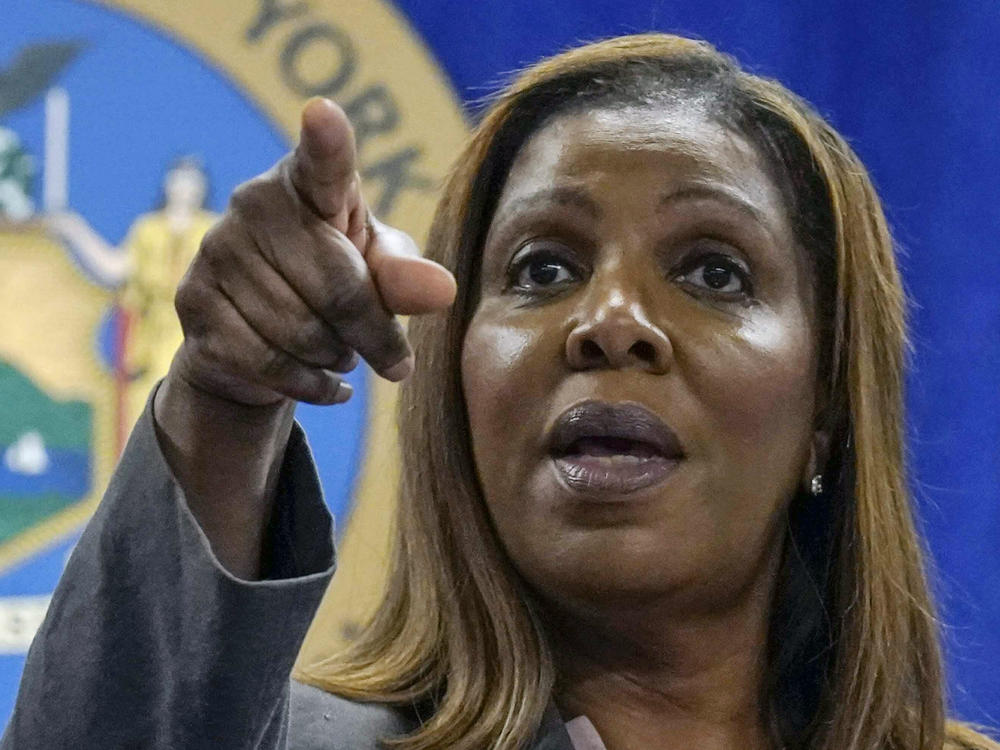Georgia High School Musical Theatre Awards at 8p
Section Branding
Header Content
New York attorney general launches probe of Twitch and Discord after Buffalo shooting
Primary Content
The New York attorney general's office said Wednesday that it has launched an investigation into tech platforms including video-streaming site Twitch, messaging platform Discord and the anonymous message board 4chan in connection with the mass shooting in Buffalo that killed 10 people.
"Time and time again, we have seen the real-world devastation that is borne of these dangerous and hateful platforms, and we are doing everything in our power to shine a spotlight on this alarming behavior and take action to ensure it never happens again," New York Attorney General Letitia James said in a statement.
New York Gov. Kathy Hochul requested the investigation; she wrote to the state's prosecutors that the Buffalo massacre "raises questions about the role of social media platforms in the promotion of violence. These questions need to be answered."
The Buffalo suspect appears to have credited the racist memes and discussion found on 4chan with influencing him in an alleged 180-page screed posted online.
A person who identified as the suspect's name, Payton Gendron, outlined plans on Discord for an attack.
A Discord spokesperson said the suspect used a private forum on the site as a digital journal. The company said shortly before the Buffalo attack, a small group of people were invited to the forum, but before that it was viewed only by the suspect.
And the suspect live-streamed the violence on Amazon-owned Twitch, which says it was able to remove the feed in less than two minutes after it started. Still, the graphic footage quickly spread across the internet.
In her statement, James said the investigation is targeting Twitch, 4chan, 8chan and Discord, but the probe may eventually include other tech platforms.
"The fact that an individual can post detailed plans to commit such an act of hate without consequence, and then stream it for the world to see is bone-chilling and unfathomable," James said. "As we continue to mourn and honor the lives that were stolen, we are taking serious action to investigate these companies for their roles in this attack."
The responsibility of social media companies in connection with radicalizing mass shooters and helping the individuals amplify footage of violence is a topic that has long been hotly debated.
And it is a discussion that is complicated by the legal landscape in the U.S., since online platforms are afforded sweeping protection from being held liable for what users post.
There are narrow ways to get around the legal shield, known as Section 230 of the Communications Decency Act, including if a social media site carries content that violates a federal criminal law.
"If a suspect commits a federal hate crime and prosecutors also name an online service as a defendant, Section 230 categorically does not apply to them," said Eric Goldman, a professor at Santa Clara University School of Law. "However, the odds that an internet service would be held liable for a user's hate crimes are very, very low."
For attorney general James and other investigators attempting to hold tech companies to account for how people use the services, the legal road is always going to be a tough one, Goldman said.
He said courts have held that a platform's content moderation decisions count as a kind of free speech protected by the First Amendment. In order to overcome that, a prosecutor would have to show that a social media company had enough knowledge of bad actions that broke the law.
"How much knowledge is enough? Generally simply knowing people are doing something bad on a service is not enough knowledge," Goldman said.
Twitch and Discord say they are cooperating with several law enforcement agencies investigation the shooting, including the FBI and Department of Homeland Security.
In a statement, Twitch noted the challenge of moderating live broadcasts on its platforms, noting that the company is "continuously evaluating our policies, processes and products to keep communities safe."
Twitch added that: "Bigotry and hate don't happen in a vacuum. They're enabled by a permissive culture when we don't create spaces where people feel empowered to speak up."
Copyright 2022 NPR. To see more, visit https://www.npr.org.

